
Book reading is an important part of individual and social wellbeing (Image copyright: Sadami Konchi)
Each year, I survey my Literacies students about their reading and writing activities. Over the years, the time these young people spend on literacy activities has been increasing steadily. In 2024, they spent an average of 8 hours per day reading. At the same time, the number of books they read has been going down. Despite spending close to 3,000 hours per year reading, the number of books they had read for pleasure in the past 12 months averaged a paltry 2.9.
Our reading time is eaten up by social media and other digital shortforms while our book reading is suffering.
This is troubling because the infinite scroll is a drain on our ability to focus. Conversely, the deep reading that comes with the long form is beneficial for our ability to concentrate, to engage critically, and to develop empathy.
As the culture of book reading and its benefits fades before our eyes, encouraging book reading is more important than ever before. And that’s where the annual Language on the Move Reading Challenge comes in. The annual Language on the Move Reading Challenge is designed to encourage broad reading at the intersection of linguistic diversity and social life.
The 2025 Language on the Move Reading Challenge is our eighth challenge in a row:
- Language on the Move Reading Challenge 2024
- Language on the Move Reading Challenge 2023
- Language on the Move Reading Challenge 2022
- Language on the Move Reading Challenge 2021
- Language on the Move Reading Challenge 2020
- Language on the Move Reading Challenge 2019
- Language on the Move Reading Challenge 2018
Join us and challenge yourself – and your students, colleagues, and friends – to read one recommended book each month throughout the year!
For more reading suggestions, make sure to also follow the Language on the Move Podcast on your preferred podcast platform. In partnership with the New Books Network, we have brought you regular conversations about linguistic diversity and social participation for one year now, and we already have exciting new chats lined up for the New Year.
Happy Reading!
January: The Politics of Academic Reading
The crisis of book reading is connected to the textocalypse – textual overproduction that humans no longer have the time to read. In 2024, the editors of the International Journal of the Sociology of Language produced a special issue devoted to “The Politics of Academic Reading.” It is fitting that the 2025 Language on the Move Reading Challenge should start with this fantastic collection.
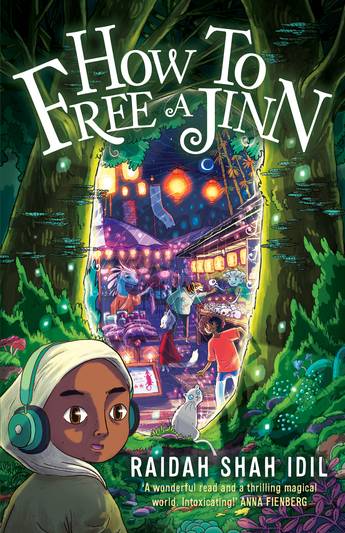 For full disclosure, I am one of the contributors, and Language on the Move readers might be particularly interested in this piece about our platform:
For full disclosure, I am one of the contributors, and Language on the Move readers might be particularly interested in this piece about our platform:
Piller, I. (2024). Can we escape the textocalypse? Academic publishing as community building [Language on the Move]. International Journal of the Sociology of Language 289-290, 123-127. https://doi.org/doi:10.1515/ijsl-2024-0132
Abstract: Rapid developments in digital technologies have fundamentally changed writing practices leading to an explosion in the number of textual products. The result is a “textocalypse” – a deep crisis in knowledge production and dissemination. Instead of pushing back, academics fuel these degenerations because their careers have become subject to the capitalist imperative to produce and consume – measured in the form of research outputs and citation metrics. Against this background, this commentary argues for a reframing of academic publishing as community building and introduces Language on the Move, an alternative sociolinguistics portal that is both a publication platform and a research community. Motivated by a feminist ethics of care, we decenter the textual product and recenter the lived experience of researchers, particularly those writing from the margins.
February: Global Communication Platform WhatsApp
Ana Sofia Bruzon recommends:
Johns, A., Matamoros-Fernández, A., & Baulch, E. (2024). WhatsApp: From a one-to-one messaging app to a global communication platform. Polity Press.
“WhatsApp provides a detailed account of WhatsApp’s growth and widespread uptake worldwide, revealing a new era in Meta’s industrial development. The authors trace WhatsApp from its inception as a chatting app to its metamorphosis into a global communication platform on which a substantial part of the Global South depends for everyday living. The volume maps the platform’s history to offer a nuanced account of its current economic (as a multi-sided market), technical (through platformization and social media features) and social dimensions (with its everyday uses and its role in public communications). Importantly, from an applied sociolinguistics perspective, the book argues that WhatsApp facilitates new types of digital literacies as it has become entrenched in the digital cultures of the world while also shedding light on the platform’s significance in civic participation and democracy. The authors brilliantly show how WhatsApp has accrued significant ‘political, economic, and cultural power’ (p. 12).”
March: How to Free a Jinn
Laura Smith-Khan recommends:
Shah Idil, Raidah. (2024). How to Free a Jinn. Allen & Unwin
“How to Free a Jinn is supernatural fantasy fiction with some refreshing twists: it follows 12-year-old Insyirah’s return to Malaysia from Australia, navigating turbulent family relationships, school and life in a new country that is supposed to feel like home. Not only that, but Insyirah soon discovers she can see and communicate with jinns, usually invisible spirits. This book offers readers a new voice and perspective, seamlessly integrating Islamic spiritual tradition and Malay and Arabic language in ways that don’t feel overexplained. As one reviewer says, this is the ‘kind of book I wish I had growing up.’”
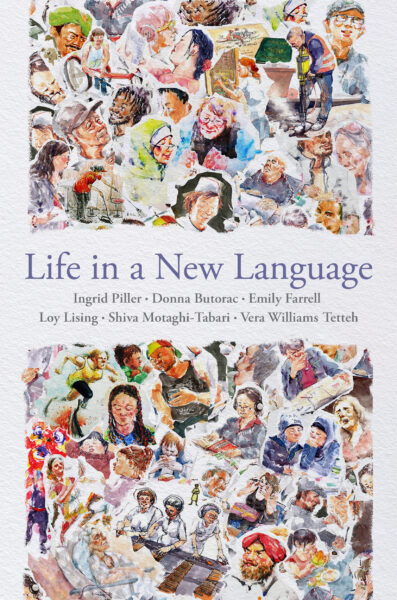
Cover art by Sadami Konchi
Bonus info: Raidah Shah Idil is a sister of Aisyah Shah Idil, whose work has also featured on Language on the Move.
April: Life in a New Language
“A highly readable and rich account of migrant stories” (Catherine Travis)
If you have not yet done so, you must read Life in a New Language in 2025. The book, which has been co-authored by six of our team members, examines the language learning and settlement trajectories of 130 migrants to Australia from 34 different countries.
Piller, I., Butorac, D., Farrell, E., Lising, L., Motaghi-Tabari, S., & Williams Tetteh, V. (2024). Life in a New Language. Oxford University Press.
You can also find a companion podcast series – with one episode with each author – on the Language on the Move podcast.
- Episode 1: Life in a New Language, Pt 1 – Identities: Brynn Quick in conversation with Donna Butorac
- Episode 2: Life in a New Language, Pt 2 –Work: Brynn Quick in conversation with Ingrid Piller
- Episode 3: Life in a New Language, Pt 3 – African migrants: Brynn Quick in conversation with Vera Williams Tetteh
- Episode 4: Life in a New Language, Pt 4 – Parenting: Brynn Quick in conversation with Shiva Motaghi-Tabari
- Episode 5: Life in a New Language, Pt 5 – Monolingual Mindset: Brynn Quick in conversation with Loy Lising
- Episode 6: Life in a New Language, Pt 6 – Citizenship: Brynn Quick in conversation with Emily Farrell
May: Judging Refugees
Laura Smith-Khan recommends:
Vogl, Anthea. (2024). Judging Refugees: Narrative and Oral Testimony in Refugee Status Determination. Cambridge University Press.
“Judging Refugees examines the role of narrative performance in the procedures for assessing asylum claims in Canada and Australia. Drawing on a close and interdisciplinary analysis of hearings and decisions from the two countries, it offers extensive and compelling evidence of the impossible demands placed on people seeking asylum. The book is featured in a recent Language on the Move podcast episode.”
June: Wordslut
Brynn Quick recommends:
Montell, Amanda. (2019). Wordslut: A Feminist Guide to Taking Back the English Language. Harper.
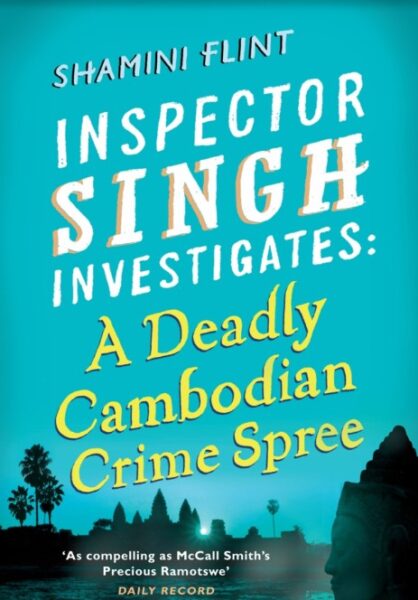 “In this romp of a read, Montell guides the reader through the linguistic history of English pejoratives used to describe women. The central thesis is that, in English, contemporary negative terms for women often began neutrally – ‘hussy’ was just a term for ‘housewife’, ‘slut’ came from a term meaning ‘untidy’, and ‘madam’ was simply a term of address (not the grande dame of a brothel). But through hundreds of years’ worth of semantic change through pejoration and amelioration (new terms that I learned in reading this book!), words have been used to lift the social status of men and denigrate that of women under Western systems of patriarchy. But it’s not all bad news! Montell also discusses the concept of gender according to both language (e.g. masculine and feminine adjectives in Italic languages) and culture (e.g. Buginese people of Indonesia recognise 5 genders, the Native American Zuni tribe recognises 3, etc.), and she reflects on a hope for more equal linguistic and cultural treatment of all genders.”
“In this romp of a read, Montell guides the reader through the linguistic history of English pejoratives used to describe women. The central thesis is that, in English, contemporary negative terms for women often began neutrally – ‘hussy’ was just a term for ‘housewife’, ‘slut’ came from a term meaning ‘untidy’, and ‘madam’ was simply a term of address (not the grande dame of a brothel). But through hundreds of years’ worth of semantic change through pejoration and amelioration (new terms that I learned in reading this book!), words have been used to lift the social status of men and denigrate that of women under Western systems of patriarchy. But it’s not all bad news! Montell also discusses the concept of gender according to both language (e.g. masculine and feminine adjectives in Italic languages) and culture (e.g. Buginese people of Indonesia recognise 5 genders, the Native American Zuni tribe recognises 3, etc.), and she reflects on a hope for more equal linguistic and cultural treatment of all genders.”
July: Inspector Singh
If you need vacation reading for the Northern summer, check out Detective Singh of the Singapore Police. The author, Shahimi Flint, has created an unusual detective character – an elderly overweight Singaporean Sikh – who will take you to crime scenes in Cambodia, China, India, Indonesia, Malaysia, Singapore, and the UK. Each episode combines a thrilling murder investigation with a deep dive into local culture, language, and social issues.
A lawyer herself, Flint brings a keen social awareness to her novels, and I learned more about the Khmer Rouge trials from A Deadly Cambodian Crime Spree than from any other source.
- Flint, S. (2009). Inspector Singh Investigates: A Most Peculiar Malaysian Murder. Hachette.
- Flint, S. (2009). Inspector Singh Investigates: A Bali Conspiracy Most Foul. Hachette.
- Flint, S. (2010). Inspector Singh Investigates: The Singapore School of Villainy. Hachette.
- Flint, S. (2011). Inspector Singh Investigates: A Deadly Cambodian Crime Spree. Hachette.
- Flint, S. (2012). Inspector Singh Investigates: A Curious Indian Cadaver. Hachette.
- Flint, S. (2013). Inspector Singh Investigates: A Calamitous Chinese Killing. Hachette.
- Flint, S. (2016). Inspector Singh Investigates: A Frightfully English Execution. Hachette.
August: Speech and the City
Matras, Y. (2024). Speech and the City: Multilingualism, Decoloniality and the Civic University. Cambridge University Press.
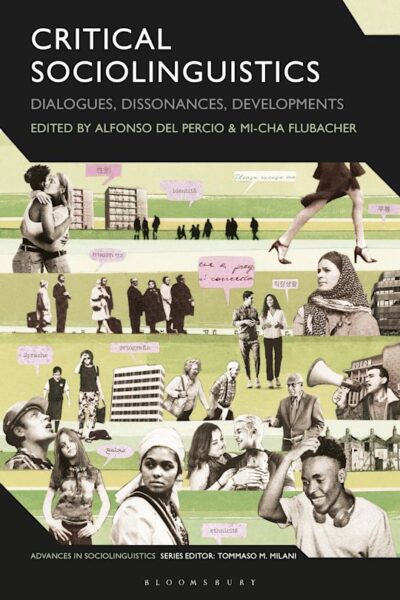 Speech and the City tells the story of ‘Multilingual Manchester’ and how an academic project succeeded in shifting the monolingual habitus. The book also offers an intriguing glimpse into the author’s distinguished career as a linguist, scholar, and activist.
Speech and the City tells the story of ‘Multilingual Manchester’ and how an academic project succeeded in shifting the monolingual habitus. The book also offers an intriguing glimpse into the author’s distinguished career as a linguist, scholar, and activist.
Abstract: The Brexit debate has been accompanied by a rise in hostile attitudes to multilingualism. However, cities can provide an important counter-weight to political polarisation by forging civic identities that embrace diversity. In this timely book, Yaron Matras describes the emergence of a city language narrative that embraces and celebrates multilingualism and helps forge a civic identity. He critiques linguaphobic discourses at a national level that regard multilingualism as deficient citizenship. Drawing on his research in Manchester, he examines the ‘multilingual utopia’, looking at multilingual spaces across sectors in the city that support access, heritage, skills and celebration. The book explores the tensions between decolonial approaches that inspire activism for social justice and equality, and the neoliberal enterprise that appropriates diversity for reputational and profitability purposes, prompting critical reflection on calls for civic university engagement. It is essential reading for anyone concerned about ways to protect cultural pluralism in our society.
September: Multilingual Crisis Communication
Li, J., & Zhang, J. (Eds.). (2024). Multilingual crisis communication: Insights from China. Taylor & Francis.
This book is the latest outcome of out team’s focus on the communication challenges raised by the Covid-19 pandemic. Li Jia and Jenny Zhang have edited a diverse collection featuring the research of emerging researchers from China.
Abstract: Multilingual Crisis Communication is the first book to explore the lived experiences of linguistic minorities in crisis-affected settings in the Global South, particularly during the Covid-19 pandemic. China has been selected as a case of inquiry for multilingual crisis communication because of its high level of linguistic diversity. Taking up critical sociopolitical approaches, this book conceptualizes multilingual crisis communication from three dimensions: identifying communication barriers, engaging communication repertoires, and empowering communication justice.
Comprising eight main chapters, along with an introduction and an epilogue, this edited book is divided into three parts in terms of the demographic and social conditions of linguistic minorities, as indigenous, migrant, and those with communicative disabilities. This book brings together a range of critical perspectives of sociolinguistic scholars, language teachers, and public health workers. Each team of authors includes at least one member of the research community with many years of field work experience, and some of them belong to ethnic minorities. These studies can generate new insights for enhancing the accessibility and effectiveness of multilingual crisis communication.
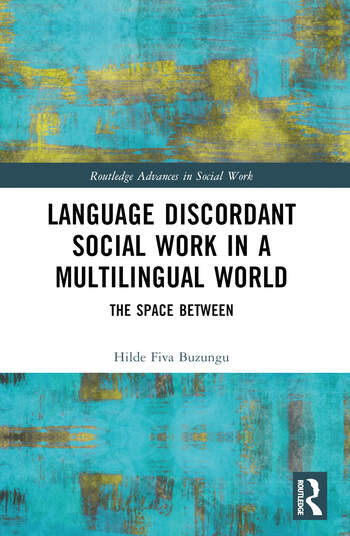 This book will be of interest to academics and postgraduate students in the fields of multilingualism, intercultural communication, translation and interpreting studies, and public health policy.
This book will be of interest to academics and postgraduate students in the fields of multilingualism, intercultural communication, translation and interpreting studies, and public health policy.
October: Critical Sociolinguistics
Del Percio, A., & Flubacher, M.-C. (Eds.). (2024). Critical sociolinguistics: dialogues, dissonance, developments. Bloomsbury.
The editors of this alternative festschrift dedicated to Monica Heller have assembled a team of 60 contributors to create an intriguing kaleidoscope of experiments in academic writing and knowledge creation.
Abstract: Providing a series of crucial debates on language, power, difference and social inequality, this volume traces developments and dissonances in critical sociolinguistics. Eminent and emerging academic figures from around the world collaboratively engage with the work of Monica Heller, offering insights into the politics and power formations that surround knowledge of language and society.
Challenging disciplinary power dynamics in critical sociolinguistics, this book is an experiment testing new ways of producing knowledge on language and society. Critically discussing central sociolinguistic concepts from critique to political economy, labor to media, education to capitalism, each chapter features a number of scholars offering their distinct social and political perspectives on the place played by language in the social fabric. Through its theoretical, epistemological, and methodological breadth, the volume foregrounds political alliances in how language is known and explored by scholars writing from specific geopolitical spaces that come with diverse political struggles and dynamics of power. Allowing for a diversity of genres, debates, controversies, fragments and programmatic manifestos, the volume prefigures a new mode of knowledge production that multiplies perspectives and starts practicing the more inclusive, just and equal worlds that critical sociolinguists envision.
November: Conversational storytelling in Spanish-English bilingual couples
Pahom, O. (2024). Conversational storytelling in Spanish-English bilingual couples: gender roles and language choices. Bloomsbury.
This meticulous study of Spanish-English bilingual couples’ conversational storytelling shows how the middle ground in intercultural communication is found when people talk and listen to each other in everyday interactions.
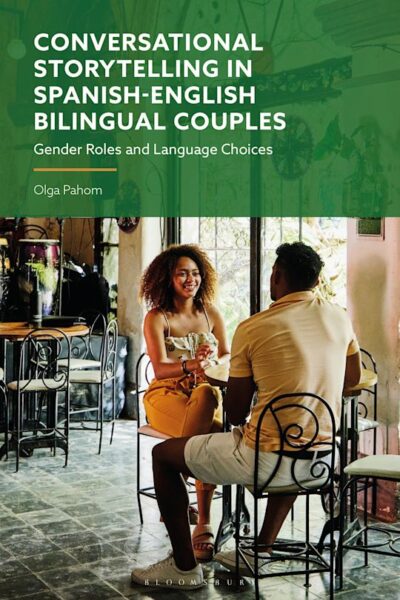 Abstract: For more than three decades, the percentage of people who married someone of a different race, ethnicity, culture, or linguistic background has been on the rise in the United States, but the communication practices of such couples have remained understudied. Combining bilingualism, gender studies, and conversation analysis, this book explores and describes the storytelling practices and language choices of several married heterosexual Spanish-English bilingual couples, all residing in Texas but each from different geographic and cultural backgrounds.
Abstract: For more than three decades, the percentage of people who married someone of a different race, ethnicity, culture, or linguistic background has been on the rise in the United States, but the communication practices of such couples have remained understudied. Combining bilingualism, gender studies, and conversation analysis, this book explores and describes the storytelling practices and language choices of several married heterosexual Spanish-English bilingual couples, all residing in Texas but each from different geographic and cultural backgrounds.
Based on more than 900 minutes of conversations and interviews, the book offers a data-driven analysis of the ways in which language choices and gender performance shape the stories, conversations, and identities of bilingual couples, which in turn shape the social order of bilingual communities. Using a combination of methodologies to investigate how couples launch, tell, and respond to each other’s stories, the book identifies seven main factors that the couples see as primary determinants of their choice of English and Spanish during couple communication. The use of conversation analysis highlights the couples’ own practices and perceptions of their language choices, demonstrating how the private language decisions of bilingual couples enable them to negotiate a place in the larger culture, shape the future of bilingualism, and establish a couple identity through shared linguistic and cultural habits.
December: Language Discordant Social Work
Buzungu, H. F. (2023). Language Discordant Social Work in a Multilingual World: The Space Between. Routledge.
This fascinating ethnography explores how social workers in Norway communicate with clients who speak little or no Norwegian. It is part of a growing number of studies of street-level bureaucrats in linguistically diverse societies – for another example, listen to our podcast interview with Clara Holzinger about Austrian employment officers.
Abstract: Based on ethnographic observations of encounters between social workers and people with whom they do not have a shared language, this book analyzes the impact of language discordance on the quality of professional service provision.
Exploring how street-level bureaucrats navigate the landscape of these discretionary assessments of language discordance, language proficiency, and the need for interpreting, the book focuses on four main themes:
- the complexity of social work talk
- the issue of participation in language discordant meetings
- communicative interaction
- the issue of how clarification is requested when needed, and whether professionals and service users are able to reach clarity when something is unclear
Based on the findings presented on these different aspects of language discordant talk, the consequences of language discordance for social work are presented and discussed, focusing primarily on issues at the intersection of language, communication, power, dominance and subordination, representation, linguicism, and ultimately, human rights and human dignity.
It will be of interest to all social work students, academics and professionals as well as those working in public services and allied health more broadly.

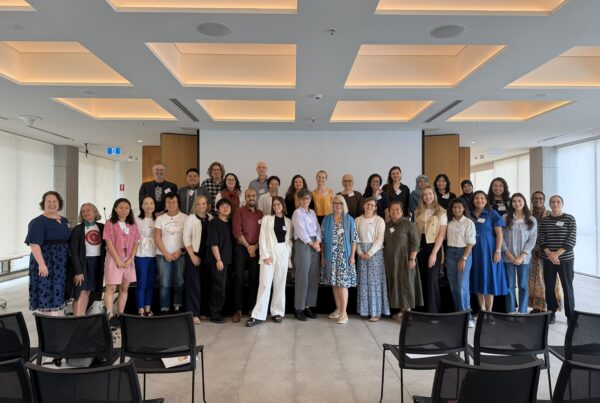
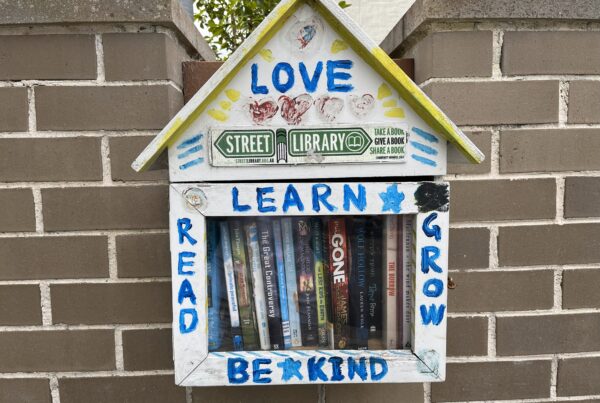
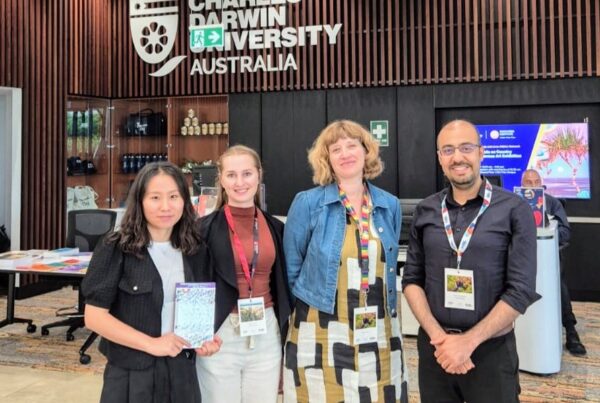


 This work is licensed under a
This work is licensed under a
Join the discussion One Comment